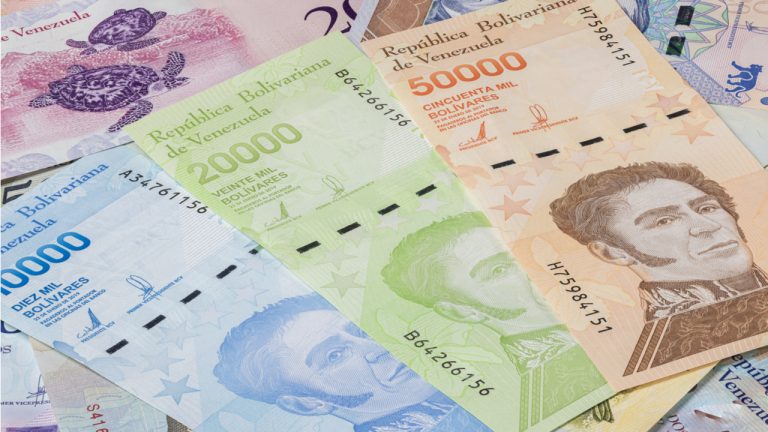 The exchange rate of the Venezuelan bolivar, the national fiat currency of the country, has plunged 35.51% against the U.S. dollar this week as a result of various factors, reaching 8.70 bolivars per U.S. dollar. According to economists, this will cause an increase in prices in the near future, with the exchange rate predicted to […]
The exchange rate of the Venezuelan bolivar, the national fiat currency of the country, has plunged 35.51% against the U.S. dollar this week as a result of various factors, reaching 8.70 bolivars per U.S. dollar. According to economists, this will cause an increase in prices in the near future, with the exchange rate predicted to […]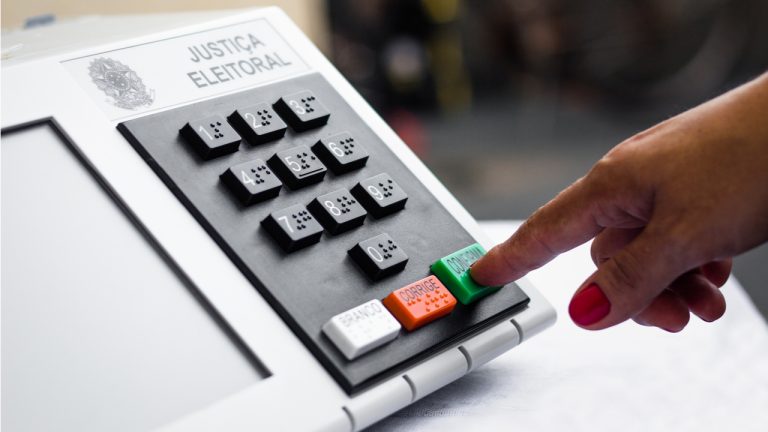 The Brazilian voting authority (TSE), has publicly declared it is studying blockchain as a technology that might help the organization in its task of organizing ballots. Celio Castro Wermerlinger, coordinator of modernization of the institution, stated that this decentralized ledger tech was included in a research program called “Elections of the Future.” Brazilian TSE Is […]
The Brazilian voting authority (TSE), has publicly declared it is studying blockchain as a technology that might help the organization in its task of organizing ballots. Celio Castro Wermerlinger, coordinator of modernization of the institution, stated that this decentralized ledger tech was included in a research program called “Elections of the Future.” Brazilian TSE Is […]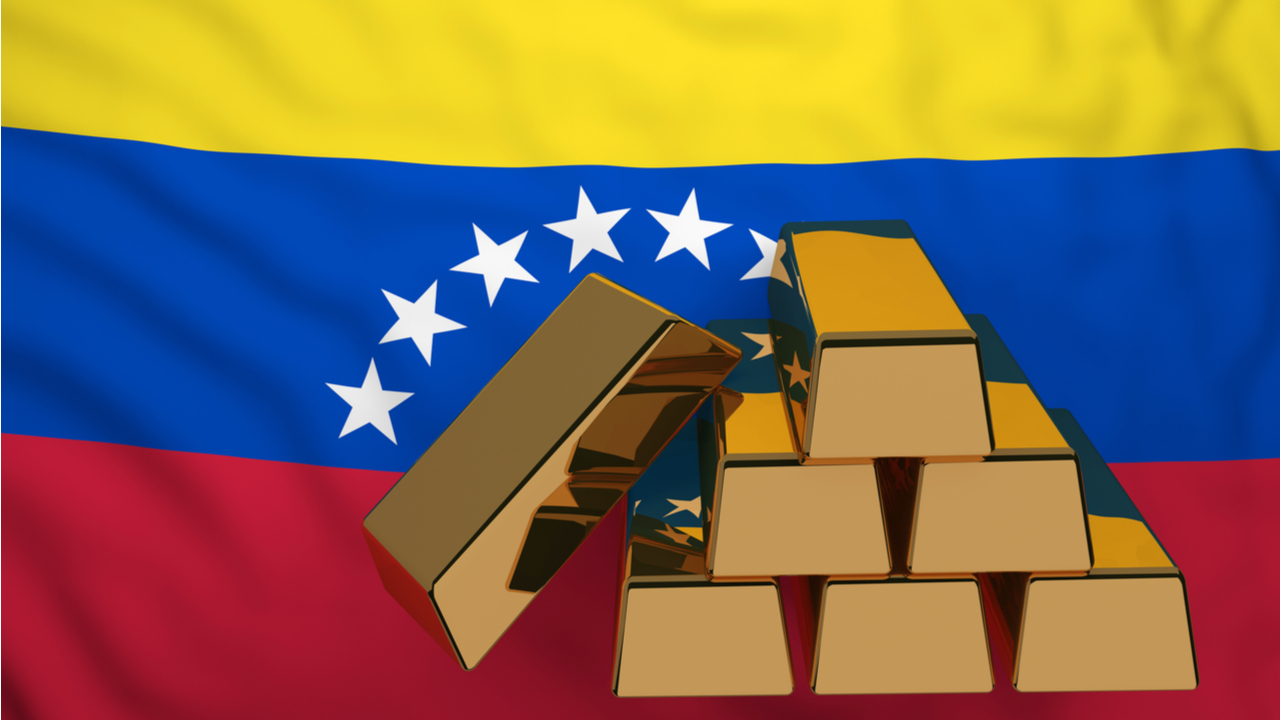 Her Majesty’s High Court of Justice in England has determined that the Venezuelan gold stored in the vaults of the Bank of England must be managed by officials of the Central bank of Venezuela designated by opposition leader Juan Guaido. The management of this gold stash, which is comprised of 31 tonnes of this precious […]
Her Majesty’s High Court of Justice in England has determined that the Venezuelan gold stored in the vaults of the Bank of England must be managed by officials of the Central bank of Venezuela designated by opposition leader Juan Guaido. The management of this gold stash, which is comprised of 31 tonnes of this precious […]
A community custody protocol, Fedimint wants to scale the Bitcoin network to a billion users located in the global south.
“Bitcoin is for billions, not billionaires,” a phrase first coined by investment researcher Lyn Alden, could soon become a reality, according to Fedimint.
The protocol that aims to scale Bitcoin (BTC) while making it more private, has been buoyed by a $4.2 million seed round for the Fedi application.
Cointelegraph spoke to Obi Nwosu, co-founder and CEO of Fedi, about the “incredible group of inspiring people who we are working with to support their activities to increase the freedoms of some of the most oppressed regions of the world,” and why the mobile app Fedi could solve issues related to scaling, custody and privacy.
Lyudmyla Kozlovska, head of the Open Dialogue Foundation — which focuses on supporting people in post-soviet Europe — Farida Bemba Nabourema, a Togolese human rights activist, and Fadi Elsalameen, president of the Palestinian Security Project and a fellow at the Foreign Policy Institute at the Johns Hopkins School of Advanced International Studies, support the Fedi app's development and its impact in the global south and emerging economies.
In brief, the Fedi wallet app connects users to Fedimint "federations." The Fedimint protocol (which takes its name from “federated” and “mint”) uses multi-signature (multisig) technology and trusted community members called "guardians."

Nwosu told Cointelegraph that Fedi hopes to have the biggest impact on those located in the global south, and that the firm is “uniquely placed to help which is why we will put special focus on deploying into these communities.”
Farid Nabourema, a Togolese human rights activist, explained to Cointelegraph that in “poor parts of the world,” acquiring a hardware wallet is near impossible. Hardware wallet distributors including Ledger, ColdCard and Trezor are not present on the continent of Africa, despite the fact that “Africa has the fastest growing adoption rate and Togo, for example, was listed among the top 10 countries having the fastest adoption per capita based on the 2021 Chainalysis report.”

The Fedi app may go some way in resolving these issues, allowing for greater exposure to Bitcoin in Africa, Nabourema continued:
“Fedimint solves a lot of our problems in one system. It offers us an extra layer of security to keep bitcoin purchase and ownership totally decentralized, anonymous and offers an extra layer of ownership.”
Nabourema details that the “federated wallet method” takes inspiration from the traditional savings methods used across Africa and emerging markets in the Caribbean and Latin America. Known as a “tontine” in francophone West Africa, a “sousou” in Nigeria, or a “zu-zu” in Trinidad and Tobago, these community savings tools help thousands of people to plan for their future. It’s among the oldest peer-to-peer savings technologies:
“This model has helped millions of people, especially women who were traditionally excluded from the banking system to fund their businesses, their children's education, to acquire properties among others.”
Fedimint uses this community-backed approach to finance but uses a decentralized, immutable currency i.e. Bitcoin. “In addition, Fedimint adds an extra layer of security and more importantly privacy as the custodians can keep the amount they own totally private from others,” Nabourema highlights.
Nourou, the founder of Bitcoin Senegal — a grassroots Bitcoin adoption campaign located in the populous West African city of Dakar — told Cointelegraph that Fedimint’s community-backed approach is a reflection of how certain Bitcoin enthusiasts run nodes.
Related: Bitcoin in Zimbabwe: Importing cars and sending money to family
Nonetheless, the way in which the groups of trusted community members called “guardians“ interact with Bitcoin using Fedi remains unclear at this stage and could pose risks, he explained:
“In this instance, guardians would have more powers than others on the network, which could create centralization challenges. Plus, there could be a risk of certain people abusing their elevated responsibilities.”
Nwosu explained that "Fedimint is a federated custody protocol that complements the Bitcoin monetary protocol and Lightning payments protocol to provide a complete solution to holding, using, and securing Bitcoin at global scale.” Community custody is a brand new development in the Bitcoin protocol while multisig, (in which two or more signatories are required to move Bitcoin), has existed for almost a decade.

Although Africa is a clear candidate for Bitcoin scaling and community-backed advancements, Nwosu told Cointelegraph that Leopoldo Lopez, the Venezuelan opposition leader who co-founded the political party Primero Justicia in the year 2000, has also shown interest. Reportedly, the solution that Fedi poses could “meet the needs of the people in Latin America at scale.”
Nabourema concluded that Fedimint will be “a lifesaver for millions of citizens living in developing worlds and most importantly those that face brutal authoritarianism at the hands of their government which tends to control their money and how they use it.”
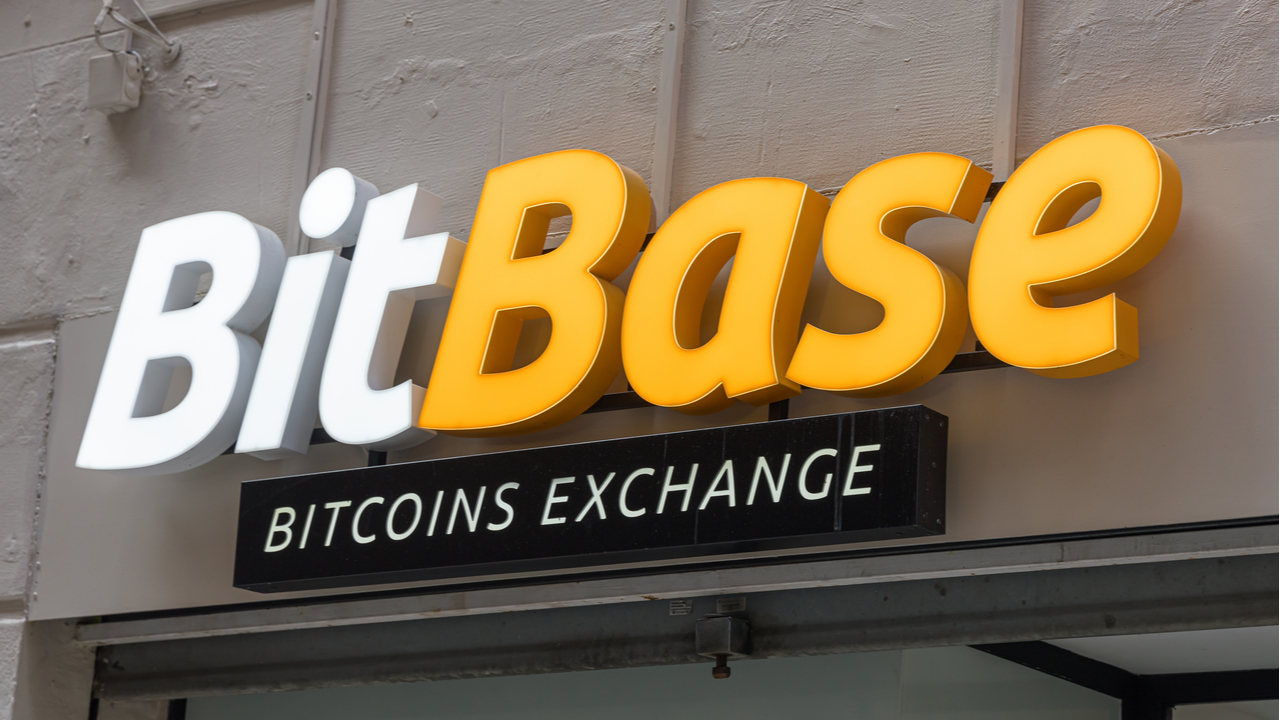 Bitbase, a Spanish cryptocurrency exchange and crypto ATM operator, has announced its expansion to Latam with the establishment of a store in Paraguay. The company, which had previously opened a store in Portugal, is now bringing its operations to several locations in Paraguay, having its sights on Venezuela as the next destination for its expansion […]
Bitbase, a Spanish cryptocurrency exchange and crypto ATM operator, has announced its expansion to Latam with the establishment of a store in Paraguay. The company, which had previously opened a store in Portugal, is now bringing its operations to several locations in Paraguay, having its sights on Venezuela as the next destination for its expansion […]
Bitcoin’s blast off to becoming “space money” takes one giant leap with a satellite full node in Brazil.
A Bitcoiner in Brazil has beamed the blockchain from space. Mauricio Cessere, product manager at Ledn and a Venezuelan national, has established the purported first Bitcoin (BTC) satellite full node in Brazil.
The full satellite node that Cessere has established downloads the Bitcoin blockchain directly from the Blockstream Satellite Network, negating the need for a reliable internet connection. It’s a small step for Bitcoin’s web of nodes but a giant leap for Bitcoin adoption, evincing that those in remote or hard to reach areas could run nodes.

A refresher for those new to nodes: a Bitcoin full node is software that continuously monitors the blockchain and its complete transaction history. A full node prohibits non-legitimate transactions and thwarts attempts to spend Bitcoin twice, known as a “double-spend”. Cessere explains that nodes “grant their owners decentralized access to the only uncensorable monetary network that we know of today.”
However, up until 2020, configuring a Bitcoin node (sometimes called a Bitcoin peer, as Bitcoin is a “peer-to-peer version of electronic cash”) was wholly dependent on local internet providers. Thanks to upgrades in Bitcoin company Blockstream’s Satellite Network, Bitcoin believers around the world can download a full node without an internet connection.

But, why does it matter? As Cessere explains: “Satellite Full Nodes are the next step to further decentralization of the Bitcoin network,” adding:
“The use case for Satellite Full Nodes could not be brighter. A few offline access points of these can fully connect remote communities to Bitcoin, even ones without prior internet access.”
There is a compelling case for satellite full nodes, particularly in countries that struggle with unstable governments, unreliable internet connections and weak digital infrastructure. In effect, a satellite full node can help more emerging countries and individuals without internet connections contribute and eventually participate in the Bitcoin network.
Bitcoin Gandalf (not his real name), of Braiins Bitcoin mining company explained to Cointelegraph that "using Blockstream satellite adds an additional level of redundancy should more traditional connectivity methods be interrupted."
It's taken me much longer than expected, but I will download #Bitcoin's blockchain from space within Brazil this year. ⛓
— El Sultán ₿itcoin (@elsultanbitcoin) January 27, 2022
In neighbouring Venezuela, for example, a Bitcoin satellite node was installed in 2020. Venezuela benefits from a robust infrastructure of satellite dish networks which as Cecere explains, “can be leveraged to expand Bitcoin’s offline signal on earth.”
Cecere connected to a Blockstream satellite from his homeland, after television network provider DirecTV left the country:
“I recycled a dish that DirecTV had installed at my parent’s house more than 10 years ago and turned it into an access point to the most powerful monetary network on Earth. That’s experiencing the power of borderless money at its utmost in the flesh!”
Venezuela is an increasingly pro-crypto nation, having experienced high levels of inflation since 2016. Across the border in Brazil, it’s another hotbed for adoption, particularly in light of a new bill that proposes protections to private keys as well as the legalization of crypto payments. The ability to run a satellite node in these countries as an offline connection point is a boon for adoption and the network’s resilience.

The Brazilian satellite full node Cessere built is connecting from a family member's house in Santos, just south of Brazil's largest city São Paulo . If the node runs successfully, the intention is to "port the equiment to Fundação Parque Tecnológico de Santos Gustavo," a technology and innovation park where it will remain permanently connected as an offline connection point.
Related: Bitcoin Lightning Network developer updates node software with Taproot support
However, the Bitcoin space signal has some limitations. Cessere explains it's a “one-way street, since one can only download data from it but not push any; hence, they’re not capable of broadcasting transactions to the network."
In the future, Blockstream may introduce an even more advanced version of their satellite equipment which may enable those with extremely limited access to internet access — such as crypto mining companies in far-flung destinations — to connect to Bitcoin.
Then, and only then will Bitcoin take on the mantle of being “space money.”
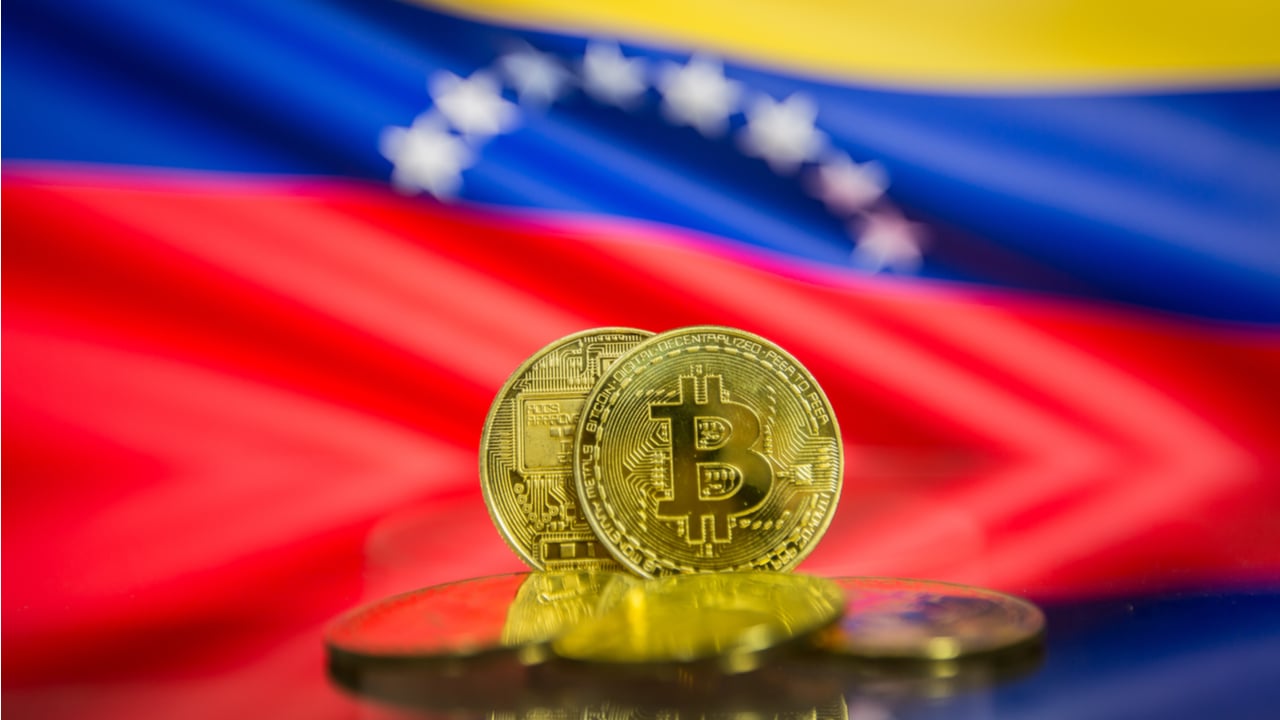 Venezuela, one of the first countries in Latam to be considered “crypto-friendly” by some standards, has ranked third in adoption rates, according to a report issued by the United Nations. The report, issued last month, states that the cryptocurrency ecosystem has grown by 2,300% between September 2019 and June 2021, and that the Covid-19 pandemic […]
Venezuela, one of the first countries in Latam to be considered “crypto-friendly” by some standards, has ranked third in adoption rates, according to a report issued by the United Nations. The report, issued last month, states that the cryptocurrency ecosystem has grown by 2,300% between September 2019 and June 2021, and that the Covid-19 pandemic […]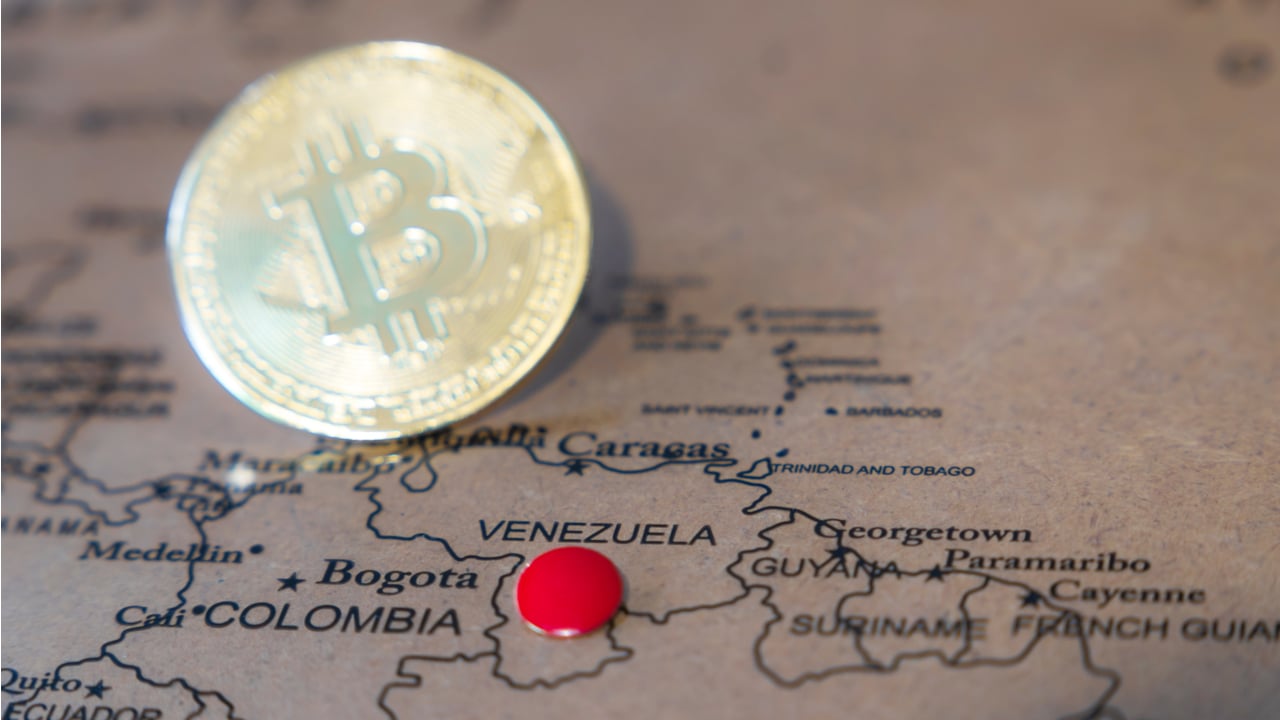 Coincoinx, a cryptocurrency exchange, will reportedly launch a service that will allow users to skip trading crypto for fiat to make payments in Venezuela. The service, which is called Coinpago, will allow users to make payments in every store and retailer in the country that accepts Pagomovil, a banking service that allows seamless fiat transfers […]
Coincoinx, a cryptocurrency exchange, will reportedly launch a service that will allow users to skip trading crypto for fiat to make payments in Venezuela. The service, which is called Coinpago, will allow users to make payments in every store and retailer in the country that accepts Pagomovil, a banking service that allows seamless fiat transfers […]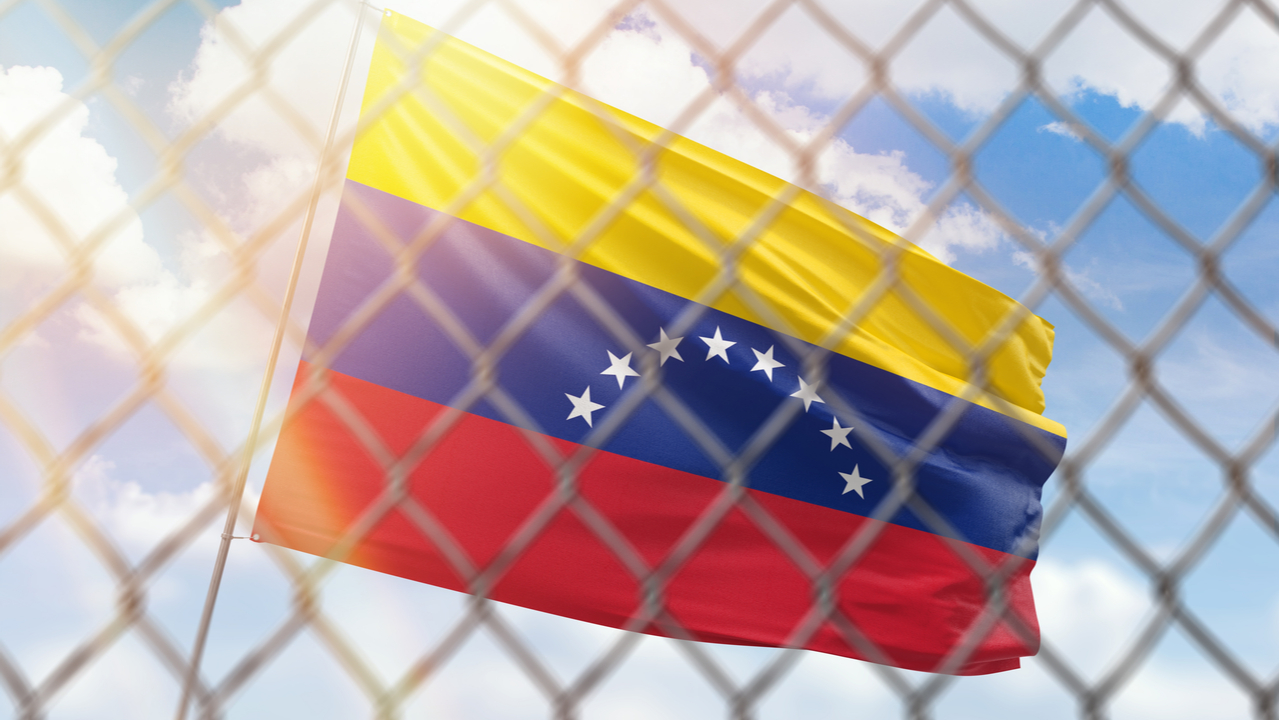 Uphold, a New York-based cryptocurrency exchange, has announced it is closing its operations in Venezuelan markets. The company, which has already had problems with users in the country in the past — shutting down accounts and requiring KYC controls that some users deemed excessive — declares that the exit from Venezuela has to do with […]
Uphold, a New York-based cryptocurrency exchange, has announced it is closing its operations in Venezuelan markets. The company, which has already had problems with users in the country in the past — shutting down accounts and requiring KYC controls that some users deemed excessive — declares that the exit from Venezuela has to do with […]
The platform advised users to withdraw funds quickly, noting it would halt trading for Venezuela-based clients on July 31, with all accounts “fully restricted” beginning Sept. 30.
Crypto trading platform Uphold said it will be withdrawing support for users in Venezuela due to sanctions imposed by the United States government.
In a Thursday announcement, Uphold said “owing to the increasing complexity of complying with U.S. sanctions” the platform would “very reluctantly” be moving out of Venezuela. The platform advised users to withdraw their funds as soon as possible, noting it would halt trading for Venezuela-based clients on July 31, with all accounts “fully restricted” starting on Sept. 30.
“As a U.S. financial institution, Uphold has to comply with U.S. sanction programs administered by the U.S. Office of Foreign Assets Control (OFAC), including those against the government of Venezuela, state-owned entities and their employees,” said the platform. “Without a change in applicable law, or specific permission from OFAC, these regulations may prohibit us from releasing funds to a small number of our Venezuelan customers.”
#RegPills ÚLTIMA HORA
— Criptolawyer.eth (@criptolawyer) June 23, 2022
La plataforma de intercambios UPHOLD @UpholdInc se RETIRA de Venezuela debido a la complejidad jurídica originada por las sanciones norteamericanas. pic.twitter.com/DeScs8260U
Many of the sanctions currently imposed by the U.S. government against Venezuela-based entities went into effect in August 2019, when the previous administration barred transactions with U.S. citizens and companies in addition to ordering all Venezuelan government assets in the United States to be frozen. In May, President Joe Biden eased some of the sanctions, focusing on restrictions around U.S.-based oil companies including Chevron.
Related: Venezuelans reportedly hit by new Bitcoin tax of up to 20%
Prior to many of these economic measures, the Venezuelan government was reportedly able to use cryptocurrencies like Bitcoin (BTC) to evade sanctions in certain circumstances. The country was also one of the biggest leaders in crypto peer-to-peer transactions in 2021 according to blockchain analytics firm Chainalysis.